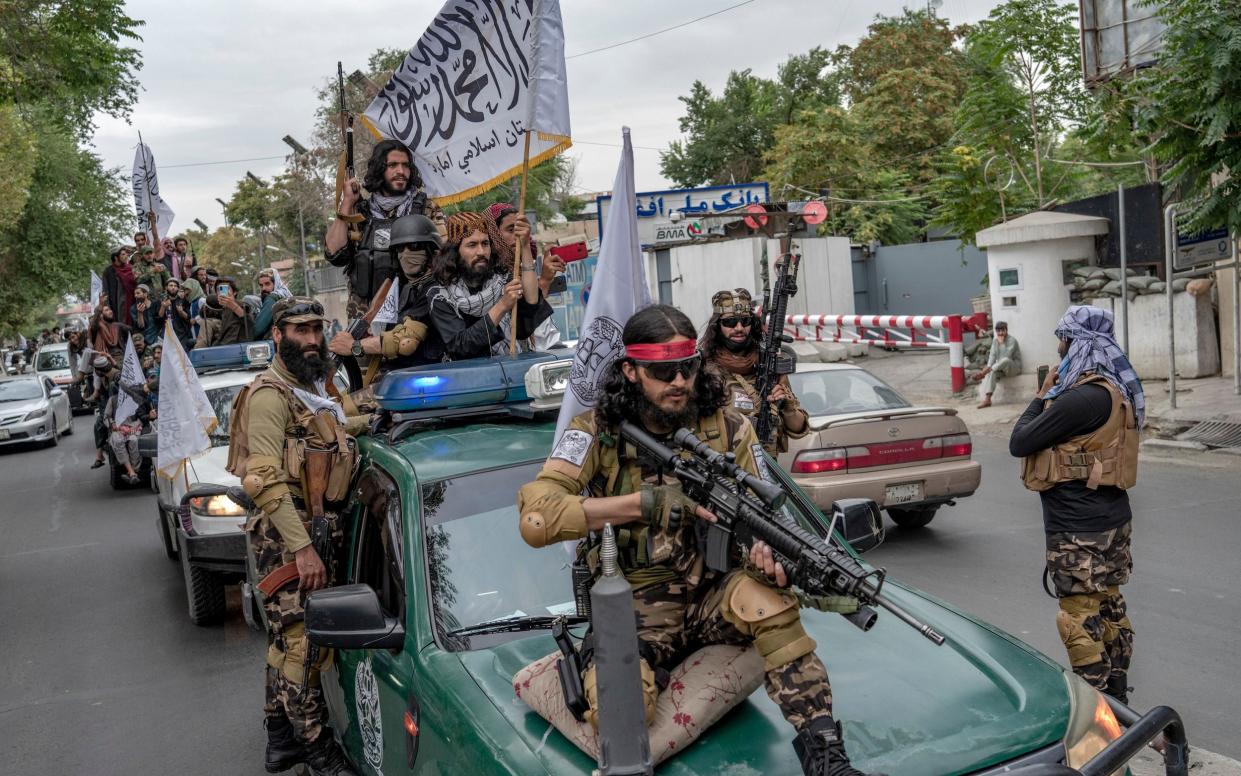Taliban fighters who moved to Kabul are ‘bored’ and fed up with traffic

Fed up with the traffic, afraid of street crime and hooked on Twitter, Taliban fighters who left their villages and rode into Kabul after decades of war are struggling with the daily grind of city life.
In an in-depth study speaking to Taliban members who swapped war in the mountains for desk jobs, the Afghanistan Analysts Network found that many Mujahideen were finding it difficult to adapt in the capital.
Once free to roam the country fighting against occupying forces, the transition to office life appears to have hit Omar Mansur, a 32-year-old Taliban commander who fought in five provinces, hard.
“We had a great degree of freedom about where to go, where to stay, and whether to participate in the war,” he said. “These days, you have to go to the office before 8am and stay there till 4pm.
“If you don’t go, you’re considered absent, and [the wage for] that day is cut from your salary.”
'Traffic has become more congested'
Now a middle-ranking civil servant, Mr Mansur cannot afford to bring his wife and five children to the capital, because of high rents.
Mr Mansur, who was born in North Waziristan and grew up in the remote village of Yahya Kheyl, about 150 miles south-west of Kabul, said the capital’s traffic was particularly egregious.
“What I don’t like about Kabul is its ever-increasing traffic hold-ups,” he said. “Last year, it was tolerable but in the last few months, it’s become more and more congested.”
Huzaifa, a 24-year-old former sniper, was enrolled in the capital’s police department on arrival. He echoed his comrade’s disdain for office life.
“The Taliban used to be free of restrictions, but now we sit in one place, behind a desk and a computer 24 hours a day, seven days a week. Life’s become so wearisome; you do the same things every day,” he said.
'I sometimes miss the jihad life'
Like many Taliban fighters who arrived in Kabul in 2021, Huzaifa grew up in a rural area and had never seen the capital before.
“After we arrived in Kabul, we were stunned by its complexity, its expanse, its size. We didn’t know where to go. Everything was strange to us and of course, we were strange to the local people.”
For 25-year-old fighter Abdul Nafi, who fought in the Taliban’s insurgency for seven years, the boredom and bureaucracy of life as a civil servant makes him miss the war.
“I sometimes miss the jihad life for all the good things it had,” he said.
“In our ministry, there’s little work for me to do. Therefore, I spend most of my time on Twitter. We’re connected to speedy Wi-Fi. Many mujahedin, including me, are addicted to the internet, especially Twitter.”
High crime rates in Kabul were also of concern to fighters like Mr Nafi.
“What I dislike about Kabul is its traffic and what I fear is its thieves,” he said. “I keep my pistol on my person all the time after two of our comrades were robbed.”

 Yahoo News
Yahoo News 
